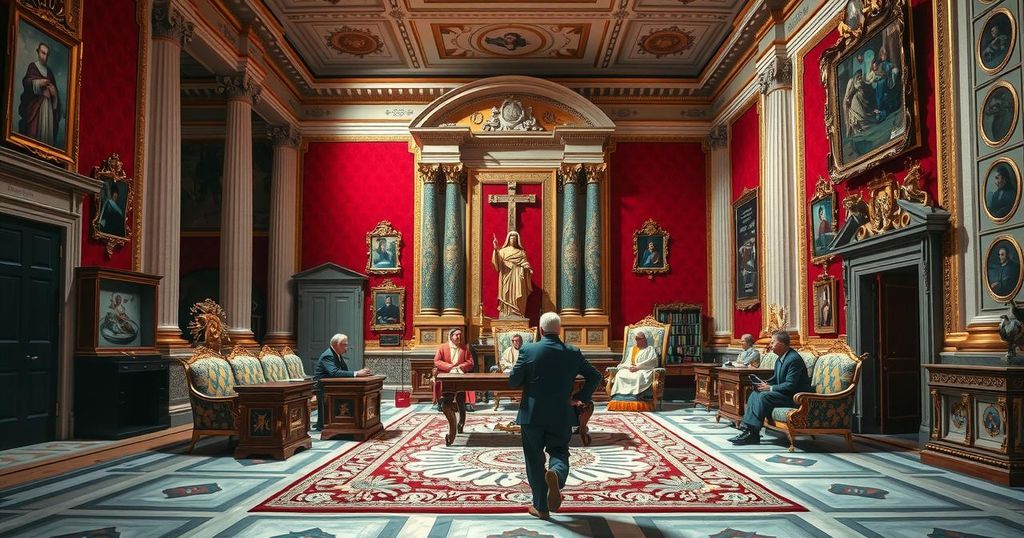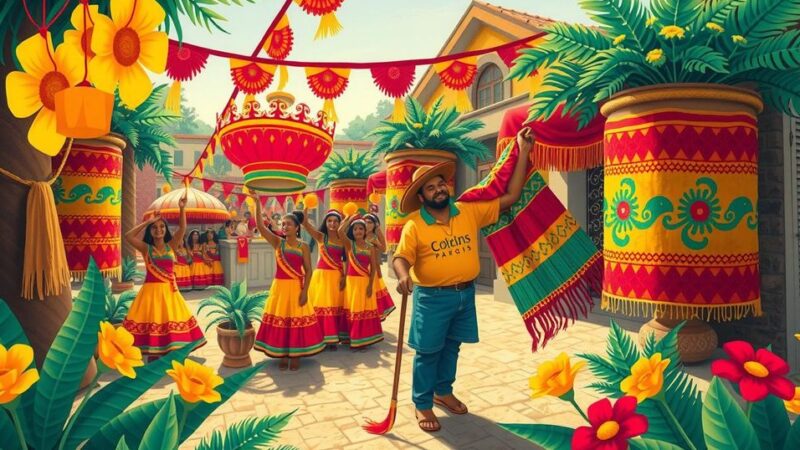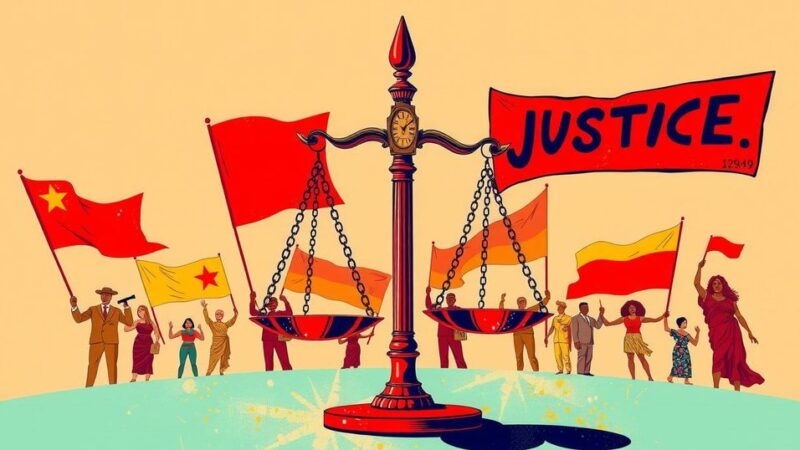On May 19, 2025, Colombian President Gustavo Petro met with Pope Leo XIV at the Vatican to discuss crucial issues such as climate change, migration, and peace negotiations in Colombia. Emphasizing the urgency of environmental concerns, Petro argued that U.S. policies need to change to prioritize human life. He also extended an invitation to the Pope to visit Colombia, highlighting significant cultural sites relevant to indigenous history and ecological preservation.
Colombia’s President Gustavo Petro met with Pope Leo XIV at the Vatican on May 19, 2025, addressing key issues like inner peace and climate challenges facing Colombia. The 22-minute private audience took place in the Apostolic Palace, and their discussion was both cordial and intense, as they tackled heavy topics. This meeting marked Petro’s first with the recently elected Pope, which set a hopeful tone regarding their potential collaboration.
During the meeting, President Petro emphasized the urgency of climate change, arguing it should be the foremost concern in global politics. He made a stark statement, saying, “If the U.S. government continues to treat migration as the core issue, it will end up sacrificing its own children.” This assertion highlighted his belief that tackling climate issues must take precedence, as neglecting them leads to greater suffering and displacement.
Petro expressed optimism that Pope Leo XIV, who has a deep understanding of Latin American issues and was born in the U.S., might help bridge cultural divides, particularly in appealing to Washington about prioritizing life and ecological sustainment. This could be pivotal as Colombia faces significant troubles, especially in light of migration stemming from climate change impact.
The conversation also touched on Colombia’s complicated domestic conflict, particularly concerning guerrilla groups like the ELN, which Petro noted have strayed from their original revolutionary goals toward involvement in narcotrafficking. Despite this descent into criminality, he remains hopeful about reconciliation. “There is a second chance,” he acknowledged, referring to ongoing peace dialogues in Cuba and Venezuela and emphasizing the Vatican as a possible venue for these discussions.
Petro, known for his visionary approach, highlighted a notion of “effective love” as key to transforming political discourse. He argued that the Vatican could help illustrate what such love means in the context of effective governance and peace efforts. Notably, Archbishop Paul Richard Gallagher, the Vatican’s Secretary for Relations with States, later met with Petro to reinforce their enduring diplomatic connection.
Moreover, the President’s appeal was laden with spiritual weight. He recounted his visit to the community of Sant’Egidio and its connection to global violence, particularly in Palestine. This experience prompted him to reflect on historical suffering and its resonance in today’s geopolitics.
As he concluded his visit, Petro extended an invitation for Pope Leo XIV to come to Colombia. He proposed visits to not just the capital, Bogotá, but also significant sites like Chiribiquete National Park in the Amazon and the spiritual haven of Santa Marta. He described Chiribiquete, which hosts ancient cave paintings, as a symbol of cultural endurance and resistance against colonial narratives. “That place is proof that we were not discovered—we were already here,” he stated, underscoring the importance of recognizing indigenous history amid current ecological crises.
Petro’s visit highlighted the intertwined destinies of Colombia’s struggles and the broader discussions about climate, peace, and spirituality. It brings not only local issues to the forefront but also challenges global leaders, particularly those in the U.S., to rethink their approach to pressing humanitarian concerns.
In summary, President Gustavo Petro’s meeting with Pope Leo XIV signifies a pivotal moment for Colombia, tackling climate change, migration, and domestic conflict. Petro’s challenges to U.S. policies and his vision for peace offer a thoughtful framework to rethink current priorities, especially in the context of life and sustainability. The invitation to the Pope underscores the potential for renewed spiritual and diplomatic dialogues to address these urgent issues.
Original Source: zenit.org






